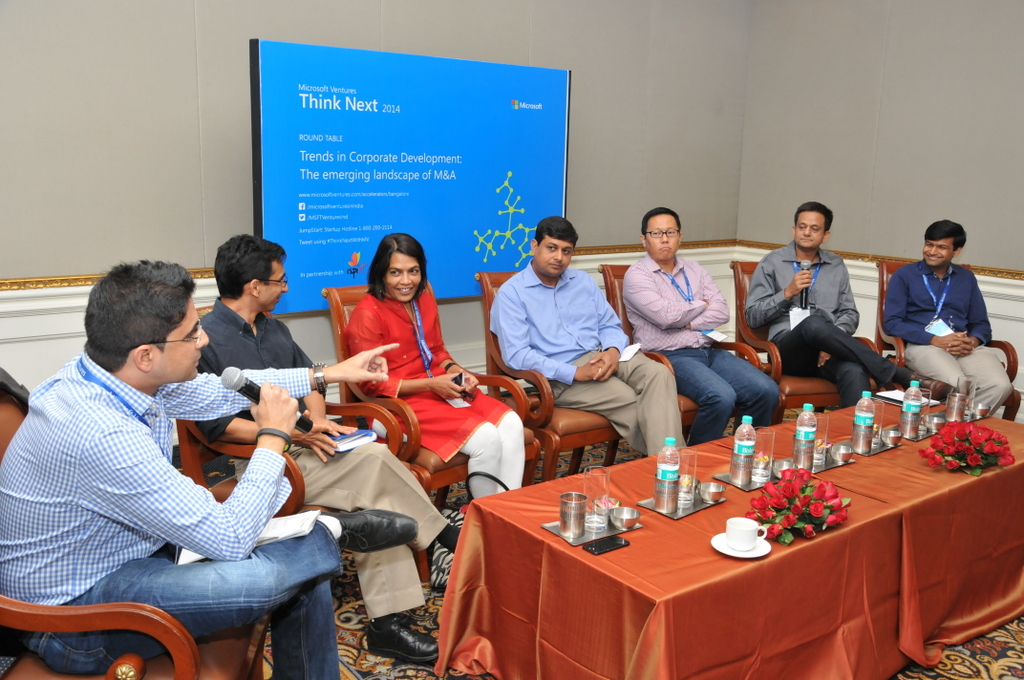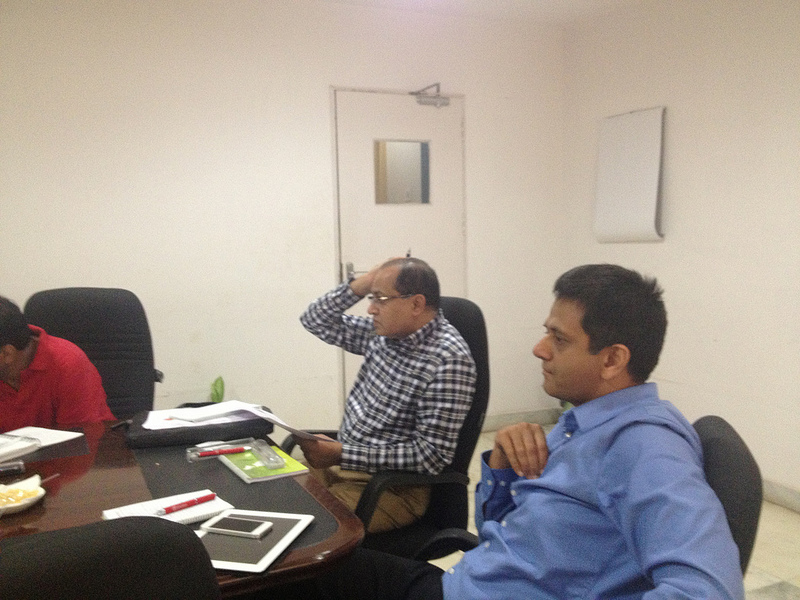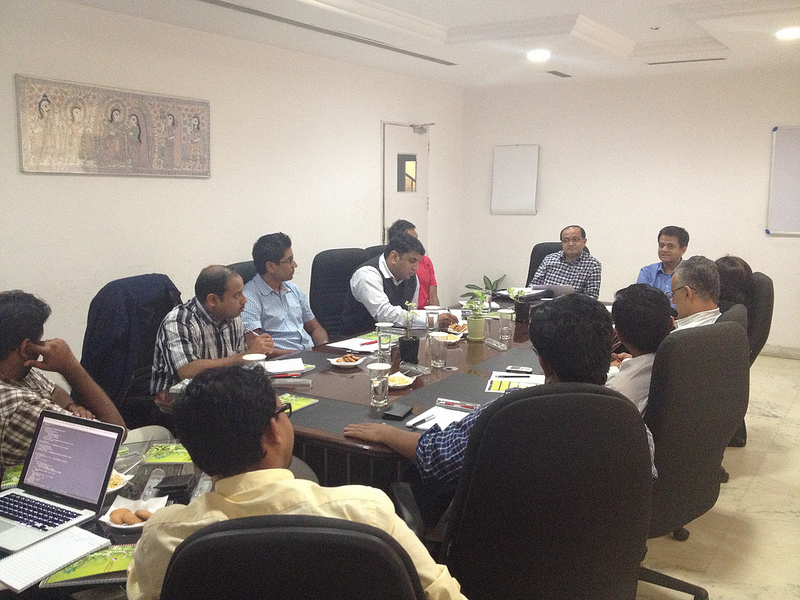2013 was a hot year for Global Technology M&A: 204 announced Tech M&A deals took place at an overall valuation of ~$100B, of which 70% were pure software companies. Thanks to a strong stock market, 51 Tech IPOs took place in 2013.
The story for the India software product industry has been different. Despite huge innovation and rising entrepreneurship, most Indian product companies have lacked meaningful exits.
 Last Friday, I hosted the M&A Panel at Microsoft Think Next in Bangalore, with a very interesting setup: 2 VCs, 2 entrepreneurs and 2 Corp Development folks from MNCs. The theme of the discussion was “The way forward for M&A for the Software products out of India”. Our star panel consisted of Ashish Gupta (Helion Ventures), Bharti Jacob (Seedfund), Ken Foo (Autodesk), Prashant Gupta (Microsoft), Sanjay Shah (Invensys Skelta) & Phani Sama (Redbus). We had a marquee audience of VCs from IDG, Lightspeed, Qualcomm, Inventus etc. who contributed their insights and really made the discussion lively!
Last Friday, I hosted the M&A Panel at Microsoft Think Next in Bangalore, with a very interesting setup: 2 VCs, 2 entrepreneurs and 2 Corp Development folks from MNCs. The theme of the discussion was “The way forward for M&A for the Software products out of India”. Our star panel consisted of Ashish Gupta (Helion Ventures), Bharti Jacob (Seedfund), Ken Foo (Autodesk), Prashant Gupta (Microsoft), Sanjay Shah (Invensys Skelta) & Phani Sama (Redbus). We had a marquee audience of VCs from IDG, Lightspeed, Qualcomm, Inventus etc. who contributed their insights and really made the discussion lively!
Here is a glimpse of the insights generated during the panel:
– “Discovery” continues to be problem #1 for India software product companies. Most Indian startups don’t show up on the radar of the big US acquirers. Autodesk first discovered Qontext (their marquee acquisition in 2012) through analyst reports in the US, and didn’t know they were an India company until later in the process.
– Corp development folks are mostly agnostic to the location of the company. As Ken Foo from Autodesk put it, “we don’t start our day thinking: today I will acquire an Israeli company … or an Indian company”. They are looking for a specific product or technology fit & location is secondary.
– One interesting insight was the Investment bankers didn’t really seem to play a role during the discovery process, and all of the participants (buy side, VCs and entrepreneurs) felt that startups shouldn’t expect a banker to help with strategic engagements. iBanks do play an important role in helping negotiate the deal and running the process to a positive conclusion.
– Acqui-hires (acquisitions with the sole intent of acquiring engineering talent) are extremely hot right now, due to the shortage of big data, analytics & android/iOS engineers. Obviously, VC investors are less excited about acquihires & view them as a “last option”. As Ashish put it, a VC will entertain an acquihire deal only when he believes that scaling the company is no longer possible, and the company is in danger of running out of cash. On the other hand, Corp development folks at the MNCs view acquihires as a ‘badge of pedigree’ for the founders!
– Entrepreneur readiness continues to be a challenge during the M&A process. Indian entrepreneurs traditionally are techies and don’t spend time building a clear differentiation story or preparing themselves for organizational and financial diligence. iSPIRT does offer an “M&A hotline” to entrepreneurs where we formally provide advice in the event of an inbound M&A interest.
– A new generation of MNCs: Traditionally, MNC companies have established captive R&D centers in India (eg: Intel, Cisco) and then looked at M&A to enter the India market or identify new technologies. However, the panelists beleived that M&A activity in software products will be driven by a new generation of MNC companies, such as Facebook, Salesforce, Autodesk etc. who have limited or no presence in India, and are looking to use M&A as a means to acquire global talent and/or establish a presence in India
– Future M&A: Based on the “Virtual Mandates” that iSPIRT has received, we believe that future technology M&A is likely to happen in the areas of Machine Learning & Analytics, SaaS disruptions like HR and Recruiting, Cloud Infrastructure & Mobility. Companies that have aggregated large groups of customers & partners within India (small medium businesses, classifieds, consumers for finance etc.) are also interesting for acquirers.
I enjoyed the frank conversation & clear thinking from the panelists, and left with a huge amount of learning and ideas that I will use to guide iSPIRT’s M&A connect program.




